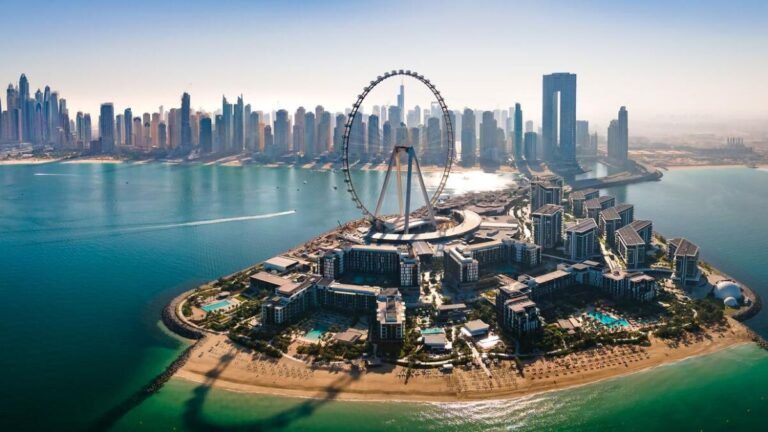The UAE aims to boost the momentum of industrial investments at the third Make it in the Emirates forum, underpinning the vital role the sector plays in the country’s economic and diversification strategies.
The forum, which will run on May 27 and 28 in Abu Dhabi, will build on the strength of the AED 120B ($32.7B) worth of local procurement agreements forged through more than 100 deals signed at past events.
This year’s event will highlight investment opportunities in several crucial industries, foremost of which are energy, telecoms, aerospace, health care, and food and beverage.
Speakers will include Dr Sultan Al Jaber, Minister of Industry and Advanced Technology, Sarah Al Amiri, Minister of State for Public Education and Advanced Technology, Badr Al Olama, director general of the Abu Dhabi Investment Office and Faisal Al Bannai, secretary general of Abu Dhabi’s Advanced Technology Research Council.
Topics dominating the two-day forum include the growth of UAE’s Operation 300bn industrial initiative, using artificial intelligence in industries, the Emirates’ space ambitions and boosting the youth’s role in the industry, among others.
The event will be hosted by the ministry, in co-operation with the Abu Dhabi Department of Economic Development. Adnoc will convene executives from global corporations, government and private sector officials, small and medium enterprises, and start-ups, among others.
Make it in the Emirates has also enabled AED 6B in financial solutions, 30 industrial projects collectively worth more than AED 6B, and about 5,000 job opportunities for Emiratis in the industrial sector, according to data from the Ministry of Industry and Advanced Technology.
“The UAE is today one of the top destinations for industrial investments,” Dr Sultan Al Jaber said on the ministry’s website.
“The country offers a range of competitive advantages, including credibility, reliability, transparent laws, solid governance, competitive financing and an excellent quality of life within a diverse, tolerant and safe society, as well as a strategic geographical location with advanced infrastructure.”
Growing the UAE’s industries and adopting advanced technology are among the central aspects of the UAE’s economic diversification strategy – several programmes have been launched in this regard – as it steers away from dependence on oil.
The Arab world’s second-largest economy expanded by 3.6 per cent to AED 1.68T last year, driven by strong non-oil sector growth, preliminary estimates from the Federal Competitiveness and Statistics Centre showed on Thursday.
At current prices, meanwhile, the Emirates’ gross domestic product stood at AED 514.13B, representing an annual expansion of about 2.3 per cent.
The UAE has also recorded a 49 per cent increase in the industrial sector’s contribution to the GDP, reaching AED 197B, since the creation of the ministry, while industrial exports have surged 60 per cent to AED 187B, it was reported in March.
Industrial productivity has increased by 18 per cent compared to 2020 and the UAE was ranked first regionally and 29th globally last year in a UN agency’s competitive industrial performance index, climbing seven spots since 2020.
The surge is underpinned by various programmes such as the National In-Country Value programme, through which, more than AED 237B being spent outside the UAE was redirected into the national economy, Dr Al Jaber had said in March.
So far, 16,000 Emiratis have been employed across ICV-certified companies.
The UAE also launched its industrial strategy, Operation 300bn, in 2021 to position the country as an industrial centre by 2031.
The 10-year strategy focuses on increasing the industrial sector’s contribution to GDP to AED 300B by 2031, from AED 133B in 2021.
The ministry also launched initiatives to allow easy financing and minimise risks for industrial companies.
Last year, it provided AED 5.3B in financing solutions for the industrial sector in co-operation with its partners including Emirates Development Bank, First Abu Dhabi Bank and Mashreq Bank.


